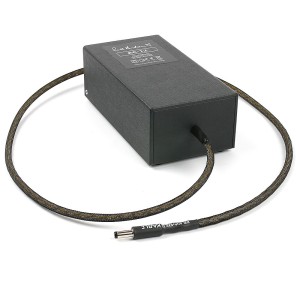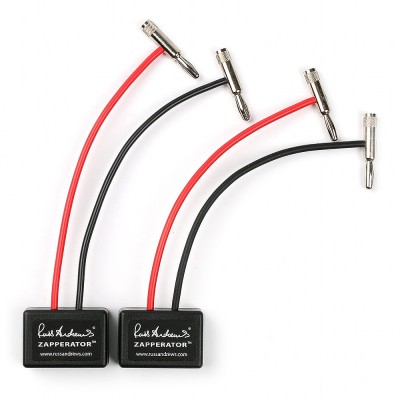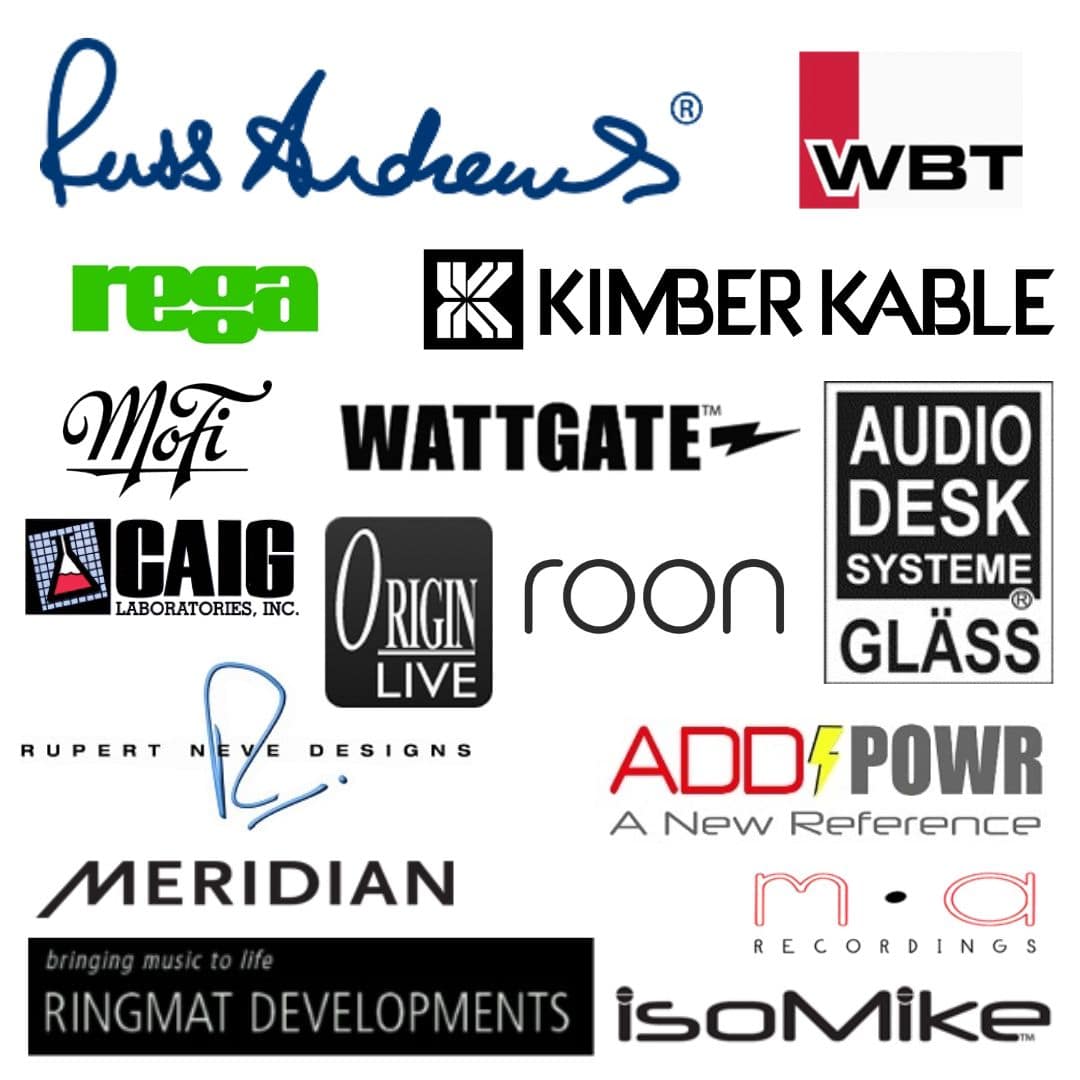Learning to Listen
Friday, 1st July 2016
An acupuncturist with a talent for curing infertility provides inspiration for Russ in his ongoing quest for listening enlightenment...
Getting to the point
I'm sitting here in the sun reading about Gerad Kite, an acupuncture master and psychotherapist who is renowned for getting women pregnant (not like that, but by talking to them. Weird. And scary!). His explanation about just why these women were apparently infertile, but after his acupuncture and a chat about them balancing their constitution suddenly became pregnant, got me thinking about how to teach people how to listen to music.
I've been talking about it and demonstrating it successfully for years, but there is a minority who just don't get it. Those are the ones I want to help. I want to help them because I can see a whole world of beauty and delight that is just invisible to them.
The bit of advice that Kite gives to women trying unsuccessfully to get pregnant struck a chord. They had been trying all the external things assuming it was a physical medical problem, when in fact it was a problem with their lifestyle and way of thinking. Get those in balance and all areas of your health improve, including fertility.
A Rocky start

The parallel I saw was that those who couldn't really hear the music from the sound were just not able to hear their own mind and body hear it. To illustrate what I mean, I will recount an experience Simon Dalton had whilst demonstrating cables in our dem room at the Rocky Mountain Audio Fest in Denver last October. Simon can describe this best...
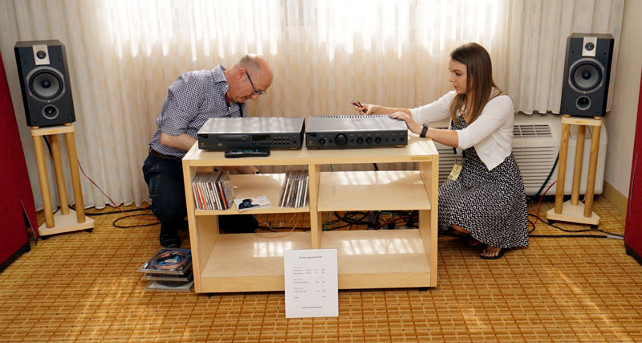
"I'd been presenting our demonstration all day - the one where we take budget kit and compare its performance using standard out-of-the-box cables with the start of the Kimber and Russ Andrews range. Up until this point, both public and reviewers had been very clear about the improvements that were brought by this move. To give you an idea, here's what the reviewer Roy Gregory had to say about the experience:
So, it's getting towards the end of the day and in walks this guy asking if we can do the dem for him. Not a problem. He makes himself comfortable and we start the music with the standard cables. We played this for 20-30 seconds and in that time he shuffled around, looked at the banners around the room and even got out of his chair to examine the speakers and started asking what model they were. Not exactly captivated by the performance then...
We quickly swapped round the cables to Russ Andrews and Kimber and started the same track. Again, 20-30 seconds, but this time he sat there just listening. No looking around the room; no moving from his seat; the only movement was the tapping of his feet and the nodding of his head. The track ended and I confidently asked what he thought. The response? "I couldn't tell any difference" "
Listening to your subconscious
That quiet inner "subconscious" mind is the one you must learn to listen to because it's the only one telling you the truth about what you are hearing. It is making reliable judgements way faster than your "conscious" mind is capable of. Of course, you have to use your conscious mind to "think" and verbalise your thoughts, but you must learn to hang on to the "first thought" which was your subconscious calling and ignore your conscious habit of having "second thoughts" which just drown out the inner mind and body judgement. Sadly, at school and university we have been taught to distrust the instant intuitive reaction to things. Intuition was described as the irrational, female antithesis of proper scientific reasoning.
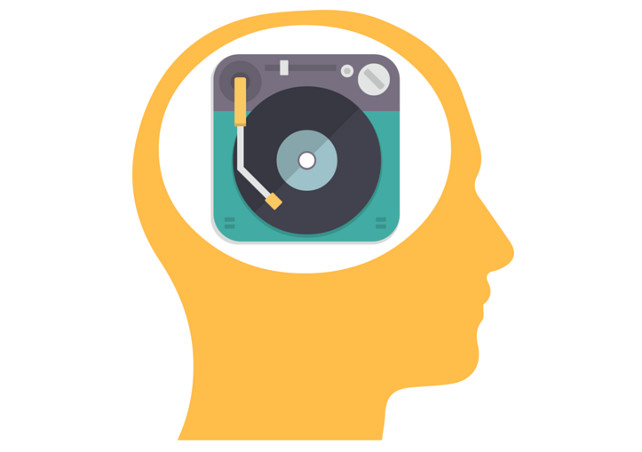
We are dealing here with our emotional reaction to a subjective experience, so the 'first thought, intuitive response' is not only appropriate, but is the only way to do it. Our response to music is emotional. It makes us 'feel' before we think about what we are hearing. We can think about what we have listened to after the performance is over, but during the music we get the most out of it by just allowing ourselves to enjoy the feelings. Just let it wash over you, your inner mind will tell you very quickly if what you are listening to is any good.
On an A/B listening session I'm listening to that first emotional reaction to tell me if B is more or less musical than A. My next step is to stop listening and take an aural 'photo' that I can analyse with my conscious mind. The shorter the time length of the music sample, the easier the process is because all you have is your instant reaction. Your instant reaction is the reliable emotional one before your second guess conscious mind starts messing with it.
I'm sorry if this is sounding impossible to you, but if you just let go and try it, you'll find it easy. I know your habit is to listen with your conscious mind, but practice will bring success. It is, after all, how normal non Hi-Fi enthusiasts do it! Over the years I have had so many enthusiasts call or write to describe situations where they had been doing A/B comparisons between cables for hours and come to no sensible conclusion, only to have their partner walk into the room and say "that sounds much better, what have you done? Why don't you leave it like that and stop messing about?" Or words to that effect. They ask me how their partner could possibly make any valid judgement when they weren't in the room and don't even like Hi-Fi? Well those are two good reasons why they get it right so easily.
They aren't listening with their eyes and conscious minds, they just respond emotionally to what they hear. They are always right. Everything they need to hear is available outside the room. It's actually harder to do it when you can see the system and feel the pressure. I developed my technique to relieve that pressure by putting myself mentally outside the room! It is a mind game, because my conscious mind wants to take over and make an 'informed' decision for me. And it is telling me the quiet inner voice is not to be trusted!
Party tricks & Objectivists
Lots of practice proved to me that I could only trust my inner emotional voice. Practice enabled me to ignore my conscious mind under even the most high pressure situations.
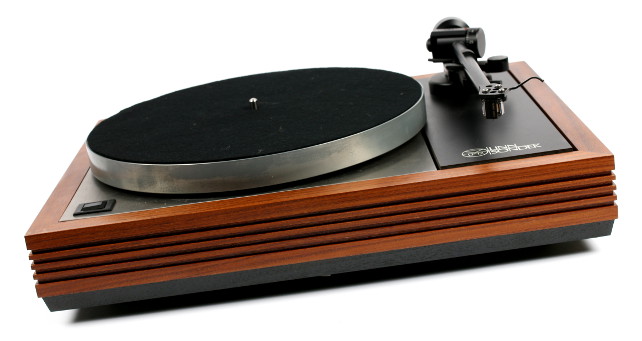
Back in the day I had a 'party trick' at Hi-Fi shows identifying the rooms using a Linn LP12 in their dem'. I could walk down the corridor with one or more reviewers and indicate which rooms were using the LP12 before we passed the door. Unsurprisingly, no one ever believed that I had no prior knowledge or they thought I was just making lucky guesses. No one in the Press then believed there was a real difference to hear. To me, all turntables had clear distinct 'voices' that were as individual as human voices.
The difference was in the level of musicality first and foremost, but actually in everything about their sound. If I had heard it before, I could identify any turntable the same way. A few years ago my friend Paul Messenger was visiting me at home and we got talking about 'the old days' and he told me he secretly tried my trick out for himself and found that he could do it too! And he kept it secret! Such is the power of the Objectivists that he must have feared professional suicide by going public. I think he is safe now!
The guys at Quad were so incensed by my claims that they set up a secret A/B/C test on tape to prove me wrong! I visited my friend David McDowell, the Quad Sales Manager, to find a tape deck set up in his system all ready to go. "It's a recording of the same music played on three different turntables. Tell me which one is an LP12". I listened and identified not only all three, but the arm and cartridge used too. He just said "you b......d, you had prior knowledge".
To him and the Objectivists at Quad, what I had done was simply impossible without prior knowledge. At that time, the 1970s, the idea of subjective listening and decision making was 'the Devil's work' and Quad was Objectivist Central Control! They couldn't measure any difference so there couldn't be any!
A final thought...
As you know, such thinking is anathema to me. It is alive and well in 2016 in the Advertising Standards Authority (ASA) who demand that Hi-Fi manufacturers back up any claims for sound quality with A/B/X testing. This is a test that can't demonstrate sameness, so it can't possibly be used to show difference [click here for a longer article on Russ's views about ABX testing]. Would you trust an Ohm meter that gave different readings on the same resistor every time you measured it?
Anyway, enough of that nonsense, we were discussing my advice on how to listen and make valid, repeatable decisions about both the music you listen to and all the bits between you and it.
I think I've said all I need, so it's up to you. Please do give my method a good try; it has worked well for me. What can I say?
Written By Russ Andrews
Comments
reviewed by Jim Thorpe
19 Jul 2016
It's true that systematic knowledge has a better checking method than the experiential, but both have a claim for our attention.
Over time experiential knowledge may be turned into systematic knowledge.
Jim
reviewed by Bob Fasoli
16 Jul 2016
Well either he was lying (why would he) or he couldn't hear any difference. Maybe others could that isn't the question. Was he lying and he could here the difference or genuinely couldn't?
Even worse, try evaluating the difference (if any). A there is no scale, what do comments like huge, significant, vast etc actually mean. Then start asking, if you can hear a difference, how much is it worth? £10: £100: £1000?
Further to the Article on A/B testing, given the option of two alternative products, how can you decide which is best (for you) without listening to both options and comparing?
The point is that our reaction to the music, and the differences in the replay, is subjective, and just because something is subjective does not mean that we cannot say anything about it, or that these comments are somehow meaningless. There is no scale for measuring the beauty of a sunset; does that mean it is meaningless to comment on it?
Russ's comments are specifically relating to ABX testing and the inherent flaws in that method for testing sound differences. A/B testing is a different matter; it's something we all do. I would add though, that even A/B testing is not very reliable under the pressure of test conditions which can adversely effect the ability of the listener to relax. But that's part of what Russ is saying in this article, that if you follow his advice on learning to listen, it will be far easier to distinguish differences in any component or cable and the level to which you think is worth investing in these improvements.












